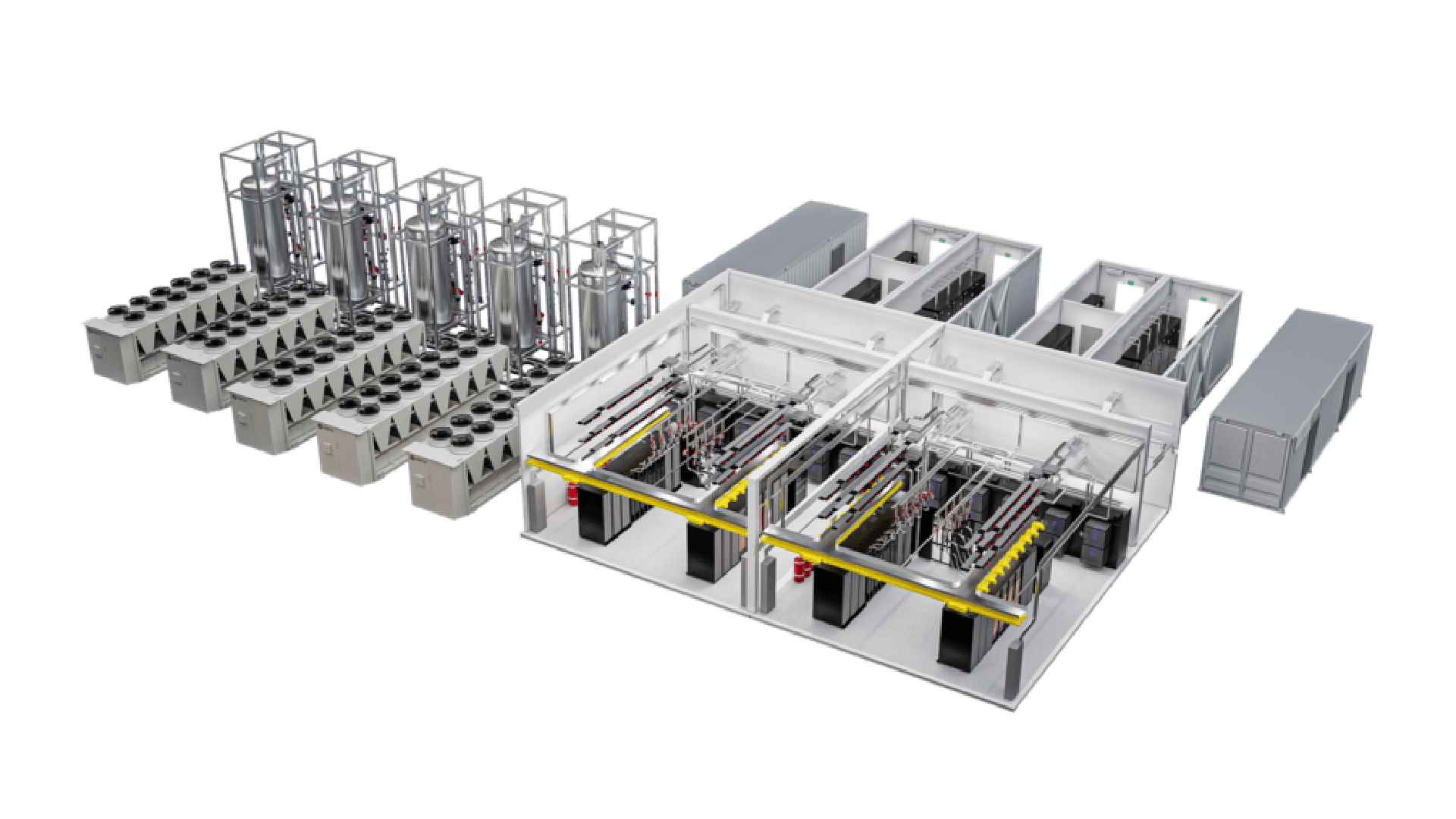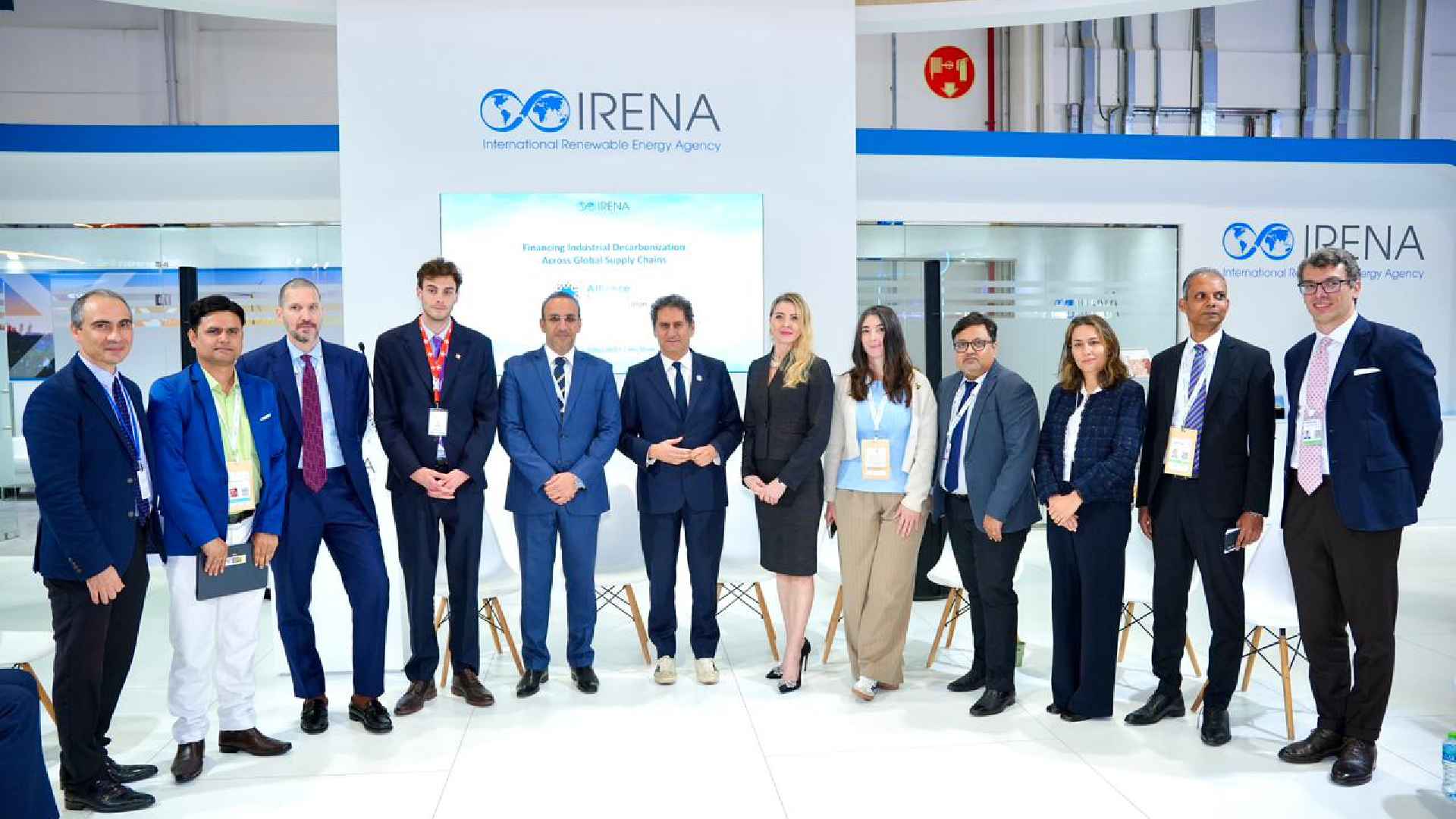Tech News
Beyond screens and speakers: How AV integration is crafting unforgettable customer experiences in MENA region

By Adrian Goulder, Technical Manager at VUE Audio Visual Trading LLC (VUEAV)
The landscape of customer engagement is undergoing a profound transformation, particularly across the Middle East and North Africa (MENA) region. Today’s consumers are not just seeking products or services; they are chasing experiences. We are living in the age of the ‘experience economy,’ where emotional resonance and immersive interaction are more important than the transaction itself. And at the heart of this shift lies a powerful, often underestimated catalyst: Audio-Visual (AV) integration.
For several years, AV has been viewed through a narrow, functional lens – a screen to display presentations or a sound system for announcements. But this perception is rapidly evolving. In the hands of forward-thinking businesses, AV has become a transformative tool, the medium through which compelling, multisensory experiences are crafted, and customer loyalty is deepened.
There are several instances in our daily life that showcase the exceptional use of AV to provide us with exceptional experiences. For instance, imagine walking into a retail space where digital displays shift in real-time based on your preferences, offering tailored product suggestions with vivid 3D visuals. Or maybe consider a museum where interactive projections breathe life into ancient artefacts, inviting visitors to explore history through gesture and touch. These aren’t visions of the distant future. They’re happening now, across the MENA region, thanks to the rise of integrated AV technologies.
A standout example of immersive AV integration is the BAPS Hindu Mandir in Abu Dhabi, where projection mapping transforms the space into a fully immersive 360° environment. Far from a passive visit, this installation surrounds worshippers and visitors alike in a blend of synchronised audio and visuals, delivering a multisensory experience. The entire Immersive Show was scripted, designed, and brought to life by a dedicated team of BAPS volunteers, who handled every aspect of the creative vision in-house – from concept development to execution.
VUEAV worked alongside Christie, a global visual technologies company and the BAPS technical team, to achieve this seamless fusion of form and function.
The installation features a sophisticated network of Christie projectors with a collective output of over 300 lumens per square metre, projecting over 60 million pixels onto architectural surfaces. This powerful AV system is orchestrated through Aurora’s IP-based solutions for video distribution and live system monitoring, while Pixera media servers ensure high-resolution content and pixel-perfect synchronisation across all outputs.
But it’s not just about what you see – it’s about what you hear and feel. Sennheiser microphones and Klipsch Professional Series 8-inch speakers, complemented by robust 15-inch subwoofers, deliver an acoustically rich environment. Each component is precisely calibrated and programmed to provide a unified and intuitive experience. Central to this installation is ‘The Fairy Tale,’ an immersive show that runs daily, merging storytelling with high-resolution visuals and surround sound.
In a parallel context, the Kingdom of Saudi Arabia is also leveraging AV to showcase the epic past of AlUla, an ancient Arabian oasis city. The Incense Road Experience, an immersive adventure developed through a partnership between VUEAV and The Aimes, is a project that blends live performance, interactivity and cutting-edge audiovisual technologies to reanimate the rich cultural heritage of this ancient trade route. A sophisticated array of Christie 4K laser projectors maps high-resolution, vibrant visuals onto architectural textures and theatrical spaces. Driven by Pixera media servers,the installation dynamically responds to visitor movement and interaction through a network of custom-designed motion sensors and RFID-triggered zones. As visitors travel the space, the audio-visual and lighting elements adapt in real-time.
A rich audio landscape is delivered through a premium Klipsch multi-zone sound system, enhanced with bespoke directional speakers and embedded subwoofers that allow scenes to breathe with immersive realism. Visitors can experience holographically projected historical, legendary figures and recreated ancient local environments complete with scent emitters and tactile surfaces. Furthermore, visitors can also craft their own incense blend through interactive prompts, in addition to unlocking personalised narrative paths using sensor-based interactions and gamified storytelling. At the heart of the experience is a powerful integration of hardware and creative content, blending high-resolution projection, real-time media control, interactive systems, and environmental storytelling.
So, what exactly is driving this transformation? These are not just futuristic fantasies. They are tangible realities being implemented across the MENA region, thanks to sophisticated AV integration, and their outcomes are remarkable. Among the many benefits are elevated engagement. Interactive kiosks, immersive video walls, and crystal-clear audio systems hold attention and turn passive customers into active participants. Offering personalised interactions is another benefit, as through integration with analytics, AV systems can adapt to individual preferences in real time. From digital restaurant menus that respond to dietary needs to personalised greetings displayed on screens in the experience becomes not just engaging, but personal.
Additionally, it creates immersive environments. Whether it is a showroom designed for multisensory experiences, or a collaborative workspace equipped with interactive displays and seamless video conferencing, AV is redefining physical space as dynamic hubs for engagement. AV technologies enable businesses to communicate their brand identity not just through words, but through unforgettable sensory experiences – such as stunning visuals, impactful sound design, and interactive installations – that resonate far beyond the initial interaction. Beyond the customer-facing benefits, AV integration streamlines backend operations, from wayfinding and internal communications to automating routine tasks and presentations.
For businesses in the MENA region, the opportunity is clear: those who invest in AV not as a utility, but as a strategic experience enabler, will lead the charge in redefining customer engagement.
In a market where expectations are rising and attention spans are shrinking, it is not enough to be seen or heard – brands must be felt. By embracing the full potential of AV technologies, organisations across the MENA region can move beyond the basics, crafting immersive, personalised, and memorable experiences that set them apart.
Tech News
VERTIV INTRODUCES NEW MODULAR LIQUID COOLING INFRASTRUCTURE SOLUTION TO SUPPORT HIGH-DENSITY COMPUTE REQUIREMENTS IN NORTH AMERICA AND EMEA

Vertiv (NYSE: VRT), a global leader in critical digital infrastructure, today announced new configurations of the Vertiv™ MegaMod™ HDX, a prefabricated power and liquid cooling infrastructure solution engineered for high-density computing environments, including artificial intelligence (AI) and high-performance computing (HPC) deployments. The new configurations give operators flexibility to support rapidly increasing power and cooling requirements while optimizing space and deployment speed. The models are available globally.
Vertiv MegaMod HDX integrates direct-to-chip liquid cooling with air-cooled architectures to meet the intense thermal demands of AI workloads, supporting pod-style AI environments and advanced GPU clusters. The new compact solution has a standard module height and a maximum of 13 racks and power capacity up to 1.25 MW; the combo solution has an extended-height design with a maximum of 144 racks, supporting power capacities up to 10 MW. Both can support rack densities from 50 kW up to more than 100 kW per rack. The hybrid cooling architectures integrate direct-to-chip liquid cooling with air cooling for efficient, high-density thermal management, while the prefabricated modular designs enable accelerated deployment and allow customers to scale their data centers as demand grows.
“Today’s AI workloads demand cooling solutions that go beyond traditional approaches. With the Vertiv MegaMod HDX available in both compact and combo solution configurations, organizations can match their facility requirements while supporting high-density, liquid-cooled environments at scale. Our designs deliver what data centers need most—reliable performance, operational efficiency, and the ability to scale their AI infrastructure with confidence,” said Viktor Petik, senior vice president, infrastructure solutions at Vertiv.
The Vertiv MegaMod HDX models feature innovative hybrid cooling architecture, combining direct-to-chip liquid cooling with adaptable air systems in a fully integrated, prefabricated pod. The solutions feature distributed redundant power architecture enabling continuous operation even if one module goes offline. Additionally, the buffer-tank thermal backup system allows GPU clusters to maintain stable operations during maintenance or load transitions. This factory-integrated design enables repeatable precision in deployment while providing cost certainty for planning and scaling AI infrastructure.
This prefabricated design, combined with factory integrated and fully tested components and Vertiv’s global service network, provide dependable end-to-end support.
Vertiv’s extensive portfolio of power, thermal, and IT management solutions supports a wide range of data center architectures, enabling customers to meet rising density demands with scalable, high-performance infrastructure. Both configurations draw on this broader portfolio, including the Vertiv™ Liebert® APM2 uninterruptible power supply (UPS), Vertiv™ CoolChip CDU cooling distribution unit, Vertiv™ PowerBar busway system, and Vertiv™ Unify infrastructure monitoring.
Vertiv also offers IT rack infrastructure designed to seamlessly accommodate and support IT systems, including Vertiv™ racks and Vertiv™ OCP- compliant racks, Vertiv™ CoolLoop RDHx rear door heat exchanger, Vertiv™ CoolChip in-rack CDU, Vertiv™ rack power distribution units, Vertiv™ PowerDirect in-rack DC power system, and Vertiv™ CoolChip Fluid Network Rack Manifolds.
Tech News
HOLCIM UAE JOINS IRENA’S ALLIANCE FOR INDUSTRY DECARBONIZATION (AFID)

Holcim has joined the Alliance for Industry Decarbonization (AFID) under the International Renewable Energy Agency (IRENA), reinforcing its commitment to play an active role in shaping the future of low-carbon construction in the UAE and beyond.
Formalized during Abu Dhabi Sustainability Week in January 2026, the membership marks a strategic milestone in Holcim UAE’s evolution from operational decarbonization to sector-wide leadership. Through AFID, Holcim is partnering with a government-led alliance, bringing its established expertise and operational leadership in sustainable building materials and solutions to policy and industry dialogues shaping the future of industrial activity in the UAE.
AFID brings together governments, international organizations, and leading industrial players to accelerate the implementation of technologies and practices across hard-to-abate sectors. Holcim’s participation reflects a deliberate focus on collaboration with policymakers and industry peers, ensuring that regulatory frameworks, investment signals, and technology pathways are informed by real-world industrial experience.
“Industry decarbonization requires practical action at scale, supported by the right policy direction. Joining AFID allows Holcim to engage at that intersection, bringing perspective shaped by practical experience to conversations that matter for the UAE’s low-carbon future,” said Ali Said, CEO of Holcim UAE and Oman.
AFID’s work spans priority areas such as Renewables, Carbon Capture, Utilization, and Storage, Circularity, Green Hydrogen, Human Capital, and Climate-aligned Finance. These focus areas closely align with Holcim’s long-term strategy where sustainability underpins how the business operates, invests, and works with partners across its value chain.
By joining AFID, Holcim reinforces its positioning as a partner focused on contributing to the broader systems and collaborations that will define the future of sustainable construction in the United Arab Emirates and the wider region.
Tech News
BELKIN ELEVATES EVERYDAY DEVICE PROTECTION WITH A NEW LINEUP OF SCREEN PROTECTORS AND A WEAR & TEAR PROGRAM

a leading consumer electronics brand for over 40 years, today announces a new class of screen protection solutions, a strategic partnership, and an all-new wear-and-tear program; advancing its commitment to keeping devices protected and consumers confident. The launch includes seven new screen protectors, a customisation partnership with ScreenSkinz, and a screen protection replacement program designed to give users lasting peace of mind and ensure the products they love stay safe, secure, and in the best shape.
Meet the ScreenForce Titan Lineup: The Ultimate in Full-Screen Protection
Titan SmartShield
Titan SmartShield serves as the premium rigid protector in the lineup, delivering aerospace-grade impact resistance and up to 18x the strength of traditional glass*. Engineered with a 9H surface hardness and rated for up to 6.5 ft / 2 m of drop protection**, Titan SmartShield offers exceptional durability without compromising clarity. An advanced anti-reflective coating preserves vivid colour and brightness in any lighting environment, while the anti-dust adhesive helps push away particles during installation for a flawless finish. The glass is manufactured with up to 60% recycled materials and is fully compatible with fingerprint sensors. A privacy version will also be available. Titan SmartShield launches in February 2026.
Titan LiquidGuard
Titan LiquidGuard is an innovative liquid screen protector that uses Nano-Titan Technology+, a proprietary fusion of a water-based German SiO₂, Graphene, and Nano-Titan Technology, to reinforce device displays at the molecular level, delivering 9H scratch protection without adding bulk. The oleophobic coating creates a smooth, smudge-resistant surface that maintains the device’s original look and touch sensitivity. Applied in minutes and backed by up to a $300 screen repair guarantee, Titan LiquidGuard offers a discreet, no-fuss approach to everyday screen protection. Titan LiquidGuard launches in February 2026.
Titan EcoGuard
Titan EcoGuard is made using advanced polymer materials infused with Nano-Titan Technology, a proprietary structure featuring high-density nano-reinforcement that delivers up to 5.9 ft / 1.8 m of drop protection. These materials are collected from post-consumer sources and certified by the Global Recycled Standard (GRS). Built to flex under pressure instead of cracking, Titan EcoGuard offers industry-leading 7H rated scratch and impact resistance with ultra-thin construction, while an anti-reflective coating preserves the device’s natural look and precision touch response. The flexible, shock-dispersing surface is ideal for curved screens and high-use devices.
The Titan EcoGuard Collection Includes:
Titan EcoGuard Anti-Reflective Screen Protector
- – The foundational model is designed for full-screen, anti-reflective protection while preserving vibrant colour and crystal-clear clarity – even under direct sunlight. It is made with 97% pre-consumer recycled materials. Includes anti-dust installation adhesive and a tray-based alignment system made with recycled plastics.
- Titan EcoGuard Privacy Filter Screen Protector
- – Incorporates vertical-view privacy filtration to protect sensitive information from side-angle viewing. Ideal for use in public settings, during travel, or for confidential work.
- Titan EcoGuard Red Light Screen Protector
- – Utilises a light-conversion layer that converts harmful blue light into soothing, skin- and eye-friendly red light, supporting everyday wellness for users sensitive to blue light or those who frequently use devices at night. This invisible, colourless protection delivers 2x the red-light exposure vs. industry standards**** while maintaining a natural viewing experience.
All Titan EcoGuard screen protectors arrive in 100% recyclable packaging using FSC-certified paper. Each kit includes a microfiber cloth, dust removal sheet, and eco-friendly alignment tray for precise, frustration-free application. Titan EcoGuard is compatible with ultrasonic fingerprint sensors and engineered for next-generation device displays.
If It’s Broken, Fix It. Quickly, Easily, and Hassle-Free.
Doubling down on its commitment to delivering the highest quality product experience, Belkin introduces a new Wear and Tear replacement program in addition to its established product warranty. Launching this month, consumers can easily replace screen protection products compromised by everyday use and/or life’s inevitable accidents, directly on Belkin.com. The new process is straightforward, transparent, and most importantly, hassle-free.
Products will continue to be replaced at no cost, with a flat shipping and handling fee applied.
The program will be available in Australia, Canada, Germany, the UK and the US, for now, with plans to expand to other countries in the future.
Custom Screen Protection with Screen Skinz
Belkin is partnering with Screen Skinz to bring a new level of personalisation to screen protection. Coming soon to Belkin.com, customers will have the ability to create a custom design or choose from a curated collection of pre-made options, which will be etched directly onto their screen protector. The result is protection that is uniquely customised. Utilising Screen Skinz’ patented etching technology, designs are visible only when the phone display is off. When the screen is on, the design disappears to ensure a smooth, uninterrupted viewing experience while delivering trusted durability and peace of mind.
-

 Tech News2 years ago
Tech News2 years agoDenodo Bolsters Executive Team by Hiring Christophe Culine as its Chief Revenue Officer
-

 VAR9 months ago
VAR9 months agoMicrosoft Launches New Surface Copilot+ PCs for Business
-

 Tech Interviews2 years ago
Tech Interviews2 years agoNavigating the Cybersecurity Landscape in Hybrid Work Environments
-

 Tech News6 months ago
Tech News6 months agoNothing Launches flagship Nothing Phone (3) and Headphone (1) in theme with the Iconic Museum of the Future in Dubai
-
News10 years ago
SENDQUICK (TALARIAX) INTRODUCES SQOOPE – THE BREAKTHROUGH IN MOBILE MESSAGING
-

 Tech News2 years ago
Tech News2 years agoBrighton College Abu Dhabi and Brighton College Al Ain Donate 954 IT Devices in Support of ‘Donate Your Own Device’ Campaign
-

 VAR1 year ago
VAR1 year agoSamsung Galaxy Z Fold6 vs Google Pixel 9 Pro Fold: Clash Of The Folding Phenoms
-

 Editorial1 year ago
Editorial1 year agoCelebrating UAE National Day: A Legacy of Leadership and Technological Innovation























